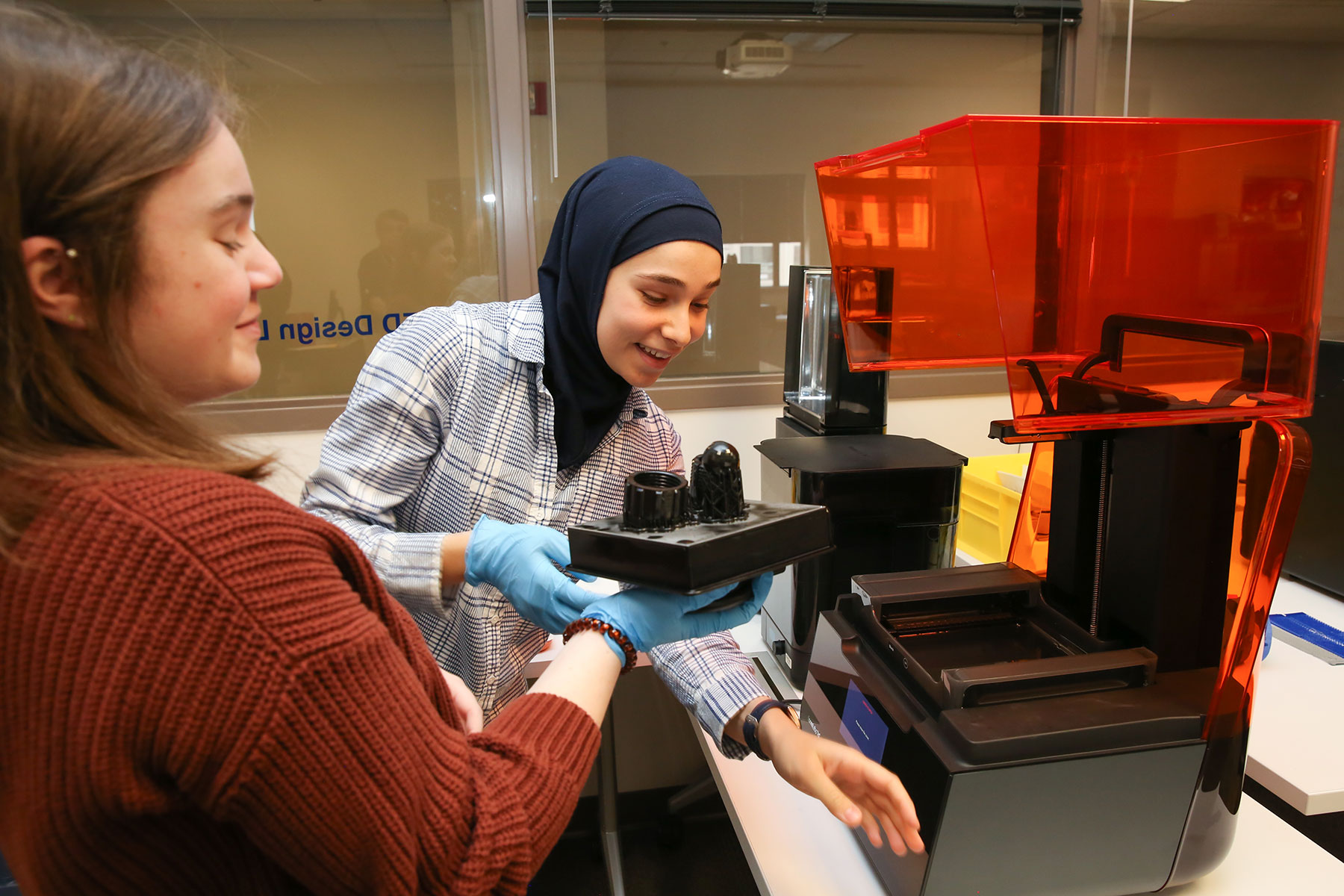We Shape the Future with Hands-On Engineering, Innovative Solutions, and Aesthetic Designs That Empower People
 Our Human-Centered Engineering Design (HCED) program equips students with the tools to solve complex problems using the design thinking process. This process empowers engineers with a strong technical foundation to research, identify, translate, and document user needs. It guides them to generate innovative product and process design ideas that address user requirements, while scientifically evaluating the usability and effectiveness of these solutions.
Our Human-Centered Engineering Design (HCED) program equips students with the tools to solve complex problems using the design thinking process. This process empowers engineers with a strong technical foundation to research, identify, translate, and document user needs. It guides them to generate innovative product and process design ideas that address user requirements, while scientifically evaluating the usability and effectiveness of these solutions.
HCED is an interdisciplinary field that bridges human-centered design, engineering, art, social sciences, and business principles. The program emphasizes interactive, iterative, and creative problem-solving, enabling students to develop products and systems that resonate deeply with user needs by fostering empathy and understanding.
This human-centered approach is rapidly being adopted across industries such as automotive, aerospace, healthcare, information technology, software, consumer electronics, digital marketing, and e-commerce. As a result, our graduates are well-positioned to pursue diverse and exciting career opportunities in these and other fields.
Where a Human-Centered Engineering Design Degree Will Take You
The diverse nature of human-centered engineering design means you will have a wide range of industries to choose from for your career. Your combination of engineering expertise and empathy with customers and their needs will make you a valued member of teams across the industrial spectrum.

